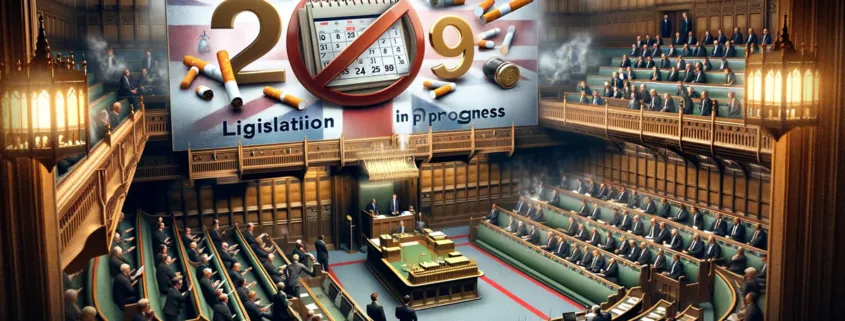UK Smoking Ban for Those Born After 2009 Begins Journey
Prime Minister Rishi Sunak’s ambitious plan to ban anyone born after 2009 from purchasing cigarettes has officially begun its journey into law. The Tobacco and Vapes Bill, which has now been published and formally introduced in Parliament, aims to give the UK some of the world’s most stringent anti-tobacco legislation.
Phasing Out Tobacco Sales
Under the proposed legislation, anyone turning 15 this year or younger will never be legally permitted to buy cigarettes. The government clarifies that smoking itself will not be criminalized, meaning those who can currently purchase tobacco legally will not be barred from doing so in the future. Instead, the legal age for buying cigarettes will effectively increase by one year every year, with the goal of preventing today’s youth from taking up the habit altogether.
Read more: Smoking Bans Worldwide: A Global Overview of Progress
Cracking Down on Vaping
The draft law also includes provisions that empower ministers to impose restrictions on vape flavors and packaging intentionally marketed toward children. This could lead to changes in how vapes, which contain nicotine, are displayed in shops, moving them out of sight of children and away from other products like sweets. The move comes as figures reveal that one in five children has tried vaping despite it being illegal for under-18s, with the number of children using vapes tripling over the past three years.
Penalties for Underage Sales
The Tobacco and Vapes Bill introduces additional measures to combat underage sales of tobacco and vapes. Shops that fail to clamp down on such sales will face £100 on-the-spot fines, in addition to the existing maximum £2,500 fine that local councils can already impose. Furthermore, it will become illegal for retailers to provide free samples of vapes to individuals under 18.
Political Divide and Support
While Conservative MPs will have a free vote on the bill, meaning they will not be instructed on how to vote by party leaders, some are expected to oppose it. Former Prime Minister Liz Truss criticized the plan, stating that a Conservative government should not seek to extend the “nanny state.” Similarly, former leader Boris Johnson labeled the plans as “barmy,” arguing that the 2009 cut-off will lead to a “smoking apartheid.”
Despite this opposition, the bill is nearly certain to become law later this year, as the Labour Party has expressed its support for the ban. Prime Minister Rishi Sunak, who announced the plan last year, emphasized the importance of tackling smoking to save lives and reduce the burden on the NHS.
Health Experts Weigh In
England’s chief medical officer, Professor Chris Whitty, praised the proposed legislation, stating that if passed, it will be a significant public health measure that reduces illness, disability, and premature deaths for current and future generations of children. Speaking to BBC Radio 4’s World At One, Professor Whitty acknowledged that there is a “high probability” that vaping is “significantly safer only because smoking is so dangerous.” He added that the law aims to strike a balance between making vapes less attractive to children and non-smokers while still allowing smokers to use them as a quitting aid.
As the UK government moves forward with its plan to phase out tobacco sales, drawing inspiration from a similar (now-scrapped) scheme in New Zealand, the nation prepares for a significant shift in its approach to smoking prevention and public health.
- HHC Vapes: What Are They & Are They Safe? - July 31, 2025
- Cannabis and Vape Shop Workers Rank Happiest in Nation - July 31, 2025
- Richmond, VA, Restricts New Vape & Tobacco Shop Locations - July 31, 2025









